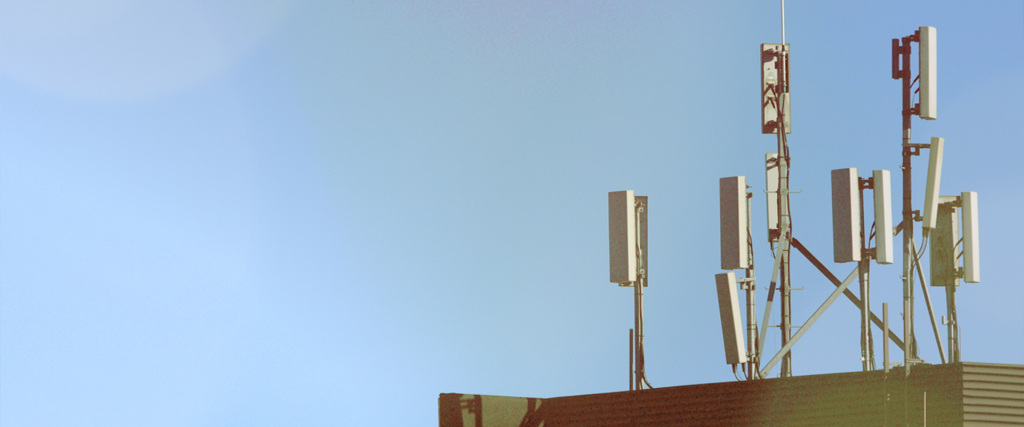
We’ve titled this article “FCC Licenses: Commonly Asked Questions” for a reason. In this article, we will ask and answer many of the frequently asked questions regarding FCC licensing. In doing so, we hope to remove some of the mystery behind the process of licensing your two-way radios.
Let’s begin by defining exactly what an FCC license is. An FCC (Federal Communications Commission) license is an official authorization issued by the United States government through the FCC.
The FCC was established by the Communications Act of 1934 and later refined by the Telecommunications Act of 1996. Its primary responsibility lies in determining the allocation of frequencies for specific applications and granting licenses accordingly.
Today, because there are many more devices than there are available channels, the FCC coordinates the separation of channels. This coordination keeps private users from unknowingly interfering with other private users or with public safety channels.
Learn More About Two-Way Radio Rentals GET STARTEDThe question, “How much does an FCC license cost?” is akin to asking, “How much does a car cost?” Check out one of our past blogs titled, “How Much Do FCC Licenses Cost?” There are about as many different prices as there are types of licenses.
Multi-Use Radio Service:MURS equipment, while free to use, might still require FCC certification and may be subject to location-specific restrictions. Check for your particular device and specific use.
Low Powered Radio Service (LPRS):
Serves as a specialized one-way communication service designed primarily for healthcare assistance and educational applications.
FRS Channels:
FRS Channels use less power, have weaker security, and can experience more interference from other users or electronic devices. In light of these considerations, you might explore the option of investing in licensed GMRS two-way radio equipment to fit your particular application.
General Mobile Radio Service (GMRS)
According to the FCC, “the General Mobile Radio Service (GMRS) is a licensed radio service that uses channels around 462 MHz and 467 MHz. The most common use of GMRS channels is for short-distance, two-way voice communications using hand-held radios, mobile radios, and repeater systems.”
The GMRS license is not designed for high-powered commercial use and the licensee is not authorized to resell the use of a GMRS channel to another user. However, because GMRS radios are licensed, they offer slightly more security and less interference than FRS. As recently as 2017, the FCC revised the GMRS license by adding additional channels in the 467 MHz band. They also increased the license term from 5 years to 10 years.
Industrial/Business Two-Way Radio
According to the FCC, “Licensees in the Industrial/Business Radio Pool use radio to support business operations. Their communications systems are used for support of day-to-day business activities, such as dispatching and diverting personnel or work vehicles, coordinating the activities of workers and machines on location, or remotely monitoring and controlling equipment.”
Industrial/Business licensees are part of Land Mobile Radio Service (LMR) and use their two-way radios as just another tool in their toolbox. Just as with any other tool, their two-way radios maximize efficiency allowing for optimum production.
Public Safety Spectrum
The Public Safety Spectrum is another part of LMR service and, according to the FCC, “serves the mission-critical communications needs of First Responders charged with the protection of life and property, such as police, fire fighters and Emergency Medical Service (EMS) providers.”
All channels, except those in the 4.9 GHz and 5.9 GHz bands, are subject to exacting frequency coordination by the FCC. It is critical to protect all public safety entities from interference.
FCC license requirements vary depending on what type of license you desire. Some Free-Use licenses only require that you send in a short form that comes with your radio, while other licenses involve the filing of several long FCC forms that require a good deal of in-depth information regarding your business/organization and the specific use of your two-way radios.
It is generally advisable that for the more complicated FCC licenses, you seek a trusted partner like RCS Communications to complete your FCC license application for the radios you purchase.
As mentioned above, the best way to get an FCC license is to let your friendly RCS Communications expert handle it for you when you purchase your radios. Your RCS representative knows which license is required and exactly how to apply for it.
However, if you wish to apply for it yourself, here are the steps for “How to Get an FCC License.”
This might seem like a complicated process because it IS! It needs to be. It’s vital that radio channels are properly coordinated to keep our communications secure and free from interference.
The good news is that most FCC licenses are valid for 10 years. And, the better news is that RCS Communications are experts at obtaining FCC licenses and can make the whole process quite painless for you.